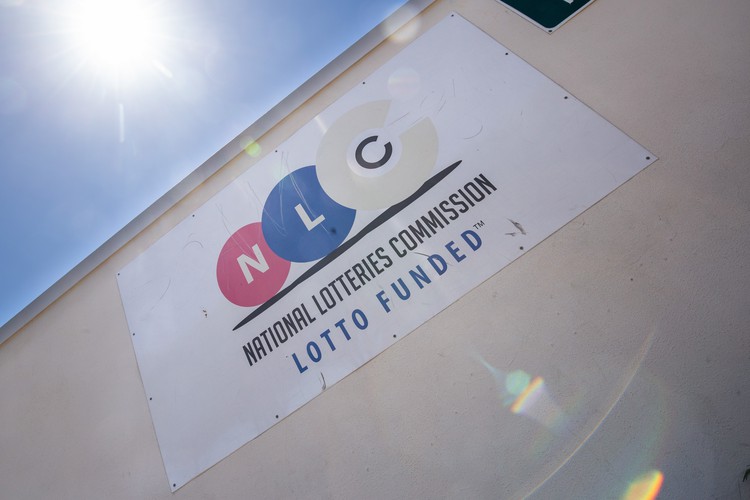Lottery official’s bank accounts frozen because of suspicious payments
R32-million paid by hundreds of grassroots organisations into accounts of KZN NLC official and his wife
Archive image: Ashraf Hendricks
- Bank accounts linked to a suspended KZN National Lottery Commission (NLC) official and his wife and their company, have been frozen.
- Nosipho Zanele Zuma, the wife of NLC official Sibonelo Vilakazi, is sole director of 05 ZZET Enterprises (Pty) Ltd.
- The SIU says over 400 daycare centres and football clubs paid over R32-million of lottery grant money to the company and accounts linked to the official.
The Special Tribunal has granted a preservation order against a KZN company that was paid more than R32-million by hundreds of non-profit organisations after they received Lottery grants.
Over 400 daycare centres and football clubs made payments between 2019 and 2023 to bank accounts linked to a NLC official based in KZN and his wife, the SIU said in a statement.
In terms of the order granted on 13 September to the Special Investigating Unit (SIU), NLC official Sibonelo Vilakazi, and his wife, Nosipho Zanele Zuma, the sole director of 05 ZZET Enterprises (Pty) Ltd, are prohibited from dealing with the funds in four frozen bank accounts.
Vilakazi has been suspended by the NLC.
There is about R2.4-million in the frozen accounts, according to the SIU. It is unclear what has happened to the other R30-million that was paid to ZZET.
The SIU said its investigations had revealed that Vilikazi, who works as an NLC client liaison officer in Durban, approached daycare centres and football clubs in KZN to ask them to apply for grant funding.
Immediately after receiving funding, these clubs and centres would then transfer large sums of money into ZZET’s bank account, as well as other bank accounts linked to Zuma and Vilakazi, the SIU said.
“The money was paid into the accounts by non-profit organisations that received funding from the NLC to improve the conditions of ordinary South Africans but [instead] made its way into bank accounts for self-enrichment,” the SIU said.
The SIU began investigating ZZET after it received an alert early this year from the Financial Intelligence Centre (FIC) of possible theft and laundering of NLC grant funds. The FIC received this information from banks that had picked up suspicious transactions and reported them in terms of the Financial Intelligence Centre (FICA) Act.
GroundUp received a tip-off with details of the payments to ZZET early this year but was unable to verify the information at the time. An analysis of the payments revealed that in some cases as much as 90% of the funds received from the NLC were paid to ZZET. In the majority of cases, 50% or more of the grants were paid to ZZET.
There were also multiple payments to ZZET for items marked as sports equipment or sports apparel.
All the payments to ZZET were done by EFT, cash deposits or internet transfers.
It is unclear what ZZET does. The Companies and Intellectual Property Commission (CIPC) lists its activities as “Business activities not restricted”. We were unable to find a website or Facebook page for the company.
In August, the Tribunal granted a similar order pending an intervention application by the SIU in a matter brought by Zuma against First National Bank (FNB) in the Durban High Court.
Zuma, in the court papers, said seven bank accounts, some business and other investments, with a collective balance of about R2.6-million, had been unilaterally frozen by the bank on 4 August.
A bank official had told her there was no court order authorising this but it had been done at the request of the NLC.
But the judge unfroze the accounts after the NLC turned tail and failed to file a promised opposing affidavit.
GroundUp understands that the NLC had decided not to file an opposing affidavit after its lawyers had warned that it would fail as FNB did not have a court order in place when it froze the accounts.
But the court order was suspended after the SIU appealed a ruling by the court that they could not be joined as defendants in the matter, SIU head Andy Mothibi told GroundUp in an interview.
After the High Court ruling, the SIU approached the Special Tribunal to vary its order - which was done - so that it was not dependent on any other court process, the SIU said in its statement.
Support independent journalism
Donate using Payfast

© 2023 GroundUp. This article is licensed under a Creative Commons Attribution-NoDerivatives 4.0 International License.
You may republish this article, so long as you credit the authors and GroundUp, and do not change the text. Please include a link back to the original article.
We put an invisible pixel in the article so that we can count traffic to republishers. All analytics tools are solely on our servers. We do not give our logs to any third party. Logs are deleted after two weeks. We do not use any IP address identifying information except to count regional traffic. We are solely interested in counting hits, not tracking users. If you republish, please do not delete the invisible pixel.

